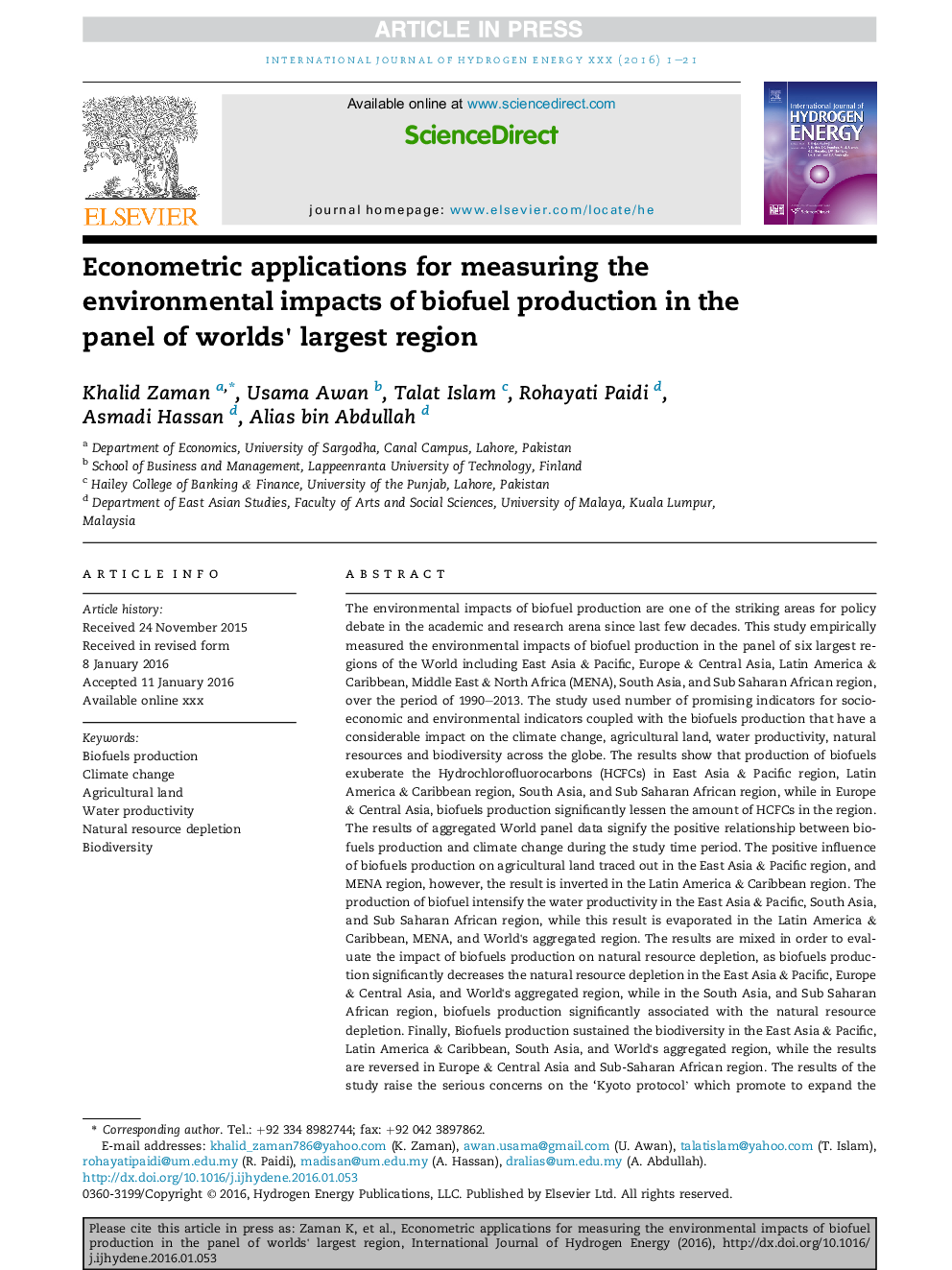| Article ID | Journal | Published Year | Pages | File Type |
|---|---|---|---|---|
| 7711431 | International Journal of Hydrogen Energy | 2016 | 21 Pages |
Abstract
The environmental impacts of biofuel production are one of the striking areas for policy debate in the academic and research arena since last few decades. This study empirically measured the environmental impacts of biofuel production in the panel of six largest regions of the World including East Asia & Pacific, Europe & Central Asia, Latin America & Caribbean, Middle East & North Africa (MENA), South Asia, and Sub Saharan African region, over the period of 1990-2013. The study used number of promising indicators for socioeconomic and environmental indicators coupled with the biofuels production that have a considerable impact on the climate change, agricultural land, water productivity, natural resources and biodiversity across the globe. The results show that production of biofuels exuberate the Hydrochlorofluorocarbons (HCFCs) in East Asia & Pacific region, Latin America & Caribbean region, South Asia, and Sub Saharan African region, while in Europe & Central Asia, biofuels production significantly lessen the amount of HCFCs in the region. The results of aggregated World panel data signify the positive relationship between biofuels production and climate change during the study time period. The positive influence of biofuels production on agricultural land traced out in the East Asia & Pacific region, and MENA region, however, the result is inverted in the Latin America & Caribbean region. The production of biofuel intensify the water productivity in the East Asia & Pacific, South Asia, and Sub Saharan African region, while this result is evaporated in the Latin America & Caribbean, MENA, and World's aggregated region. The results are mixed in order to evaluate the impact of biofuels production on natural resource depletion, as biofuels production significantly decreases the natural resource depletion in the East Asia & Pacific, Europe & Central Asia, and World's aggregated region, while in the South Asia, and Sub Saharan African region, biofuels production significantly associated with the natural resource depletion. Finally, Biofuels production sustained the biodiversity in the East Asia & Pacific, Latin America & Caribbean, South Asia, and World's aggregated region, while the results are reversed in Europe & Central Asia and Sub-Saharan African region. The results of the study raise the serious concerns on the 'Kyoto protocol' which promote to expand the biofuels to ensure the environmental sustainability, as biofuels production on agricultural land jeopardy for climate change, water resources, natural resources, and biodiversity across the globe.
Related Topics
Physical Sciences and Engineering
Chemistry
Electrochemistry
Authors
Khalid Zaman, Usama Awan, Talat Islam, Rohayati Paidi, Asmadi Hassan, Alias bin Abdullah,
